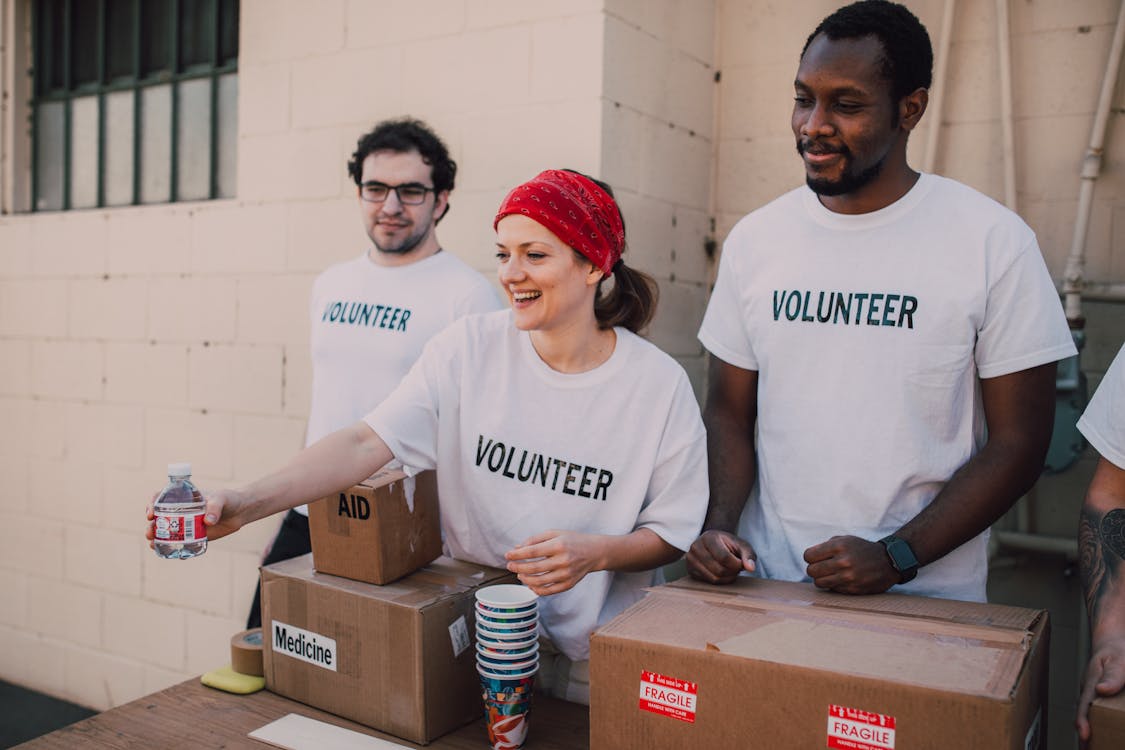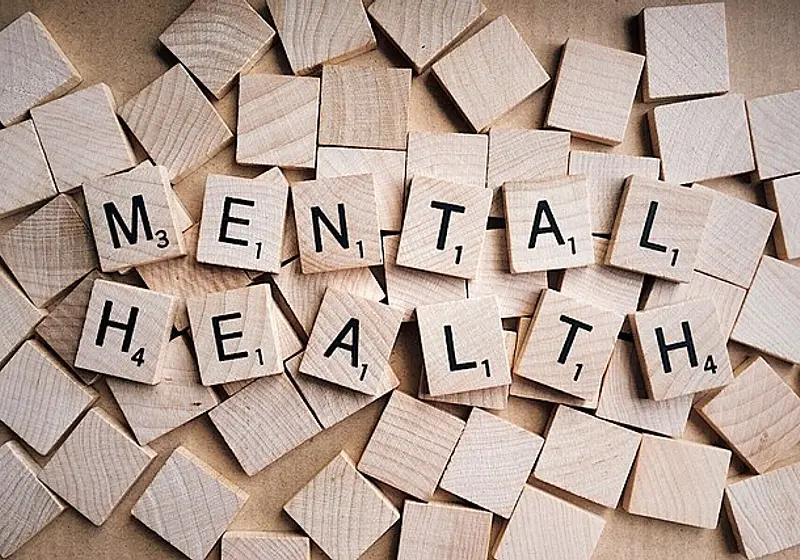There's no doubt that eating healthily, sleeping well, and exercising are all important ways to improve your emotional well-being. You could ask someone right now, and rightfully so, they would mention one of these things.
However, there are likely some quirky habits that you haven't quite thought about yet, like screaming into a pillow. With that being said, let's take a trip and explore 5 unique habits that are shown to improve mental health.

Image Credit: Pixabay from Pexels
Let us slide into your dms 🥰
Get notified of top trending articles like this one every week! (we won't spam you)
Take the Quiz: What is your IQ level?
Find out how smart you are by taking this quiz!
1. Holding a Rock
No way holding a rock could improve my mental health…or so I thought! This therapeutic technique called grounding, also known as earthing, involves coming in contact with the Earth. It's believed that this can help distance yourself from unfavorable thoughts and concentrate on the present. Additionally, studies show that grounding can improve your feelings and overall mood. Some grounding techniques include:
- Mindful Walking
- Describing a Common Task
- The 5-4-3-2-1 method
- Holding a rock or any natural thing
Surprisingly, grounding is not only used for mental health. According to Healthline, grounding also electrically reconnects you with the Earth and can provide a natural remedy for chronic fatigue, pain, and cardiovascular disease. However, you have to do a little bit more than just holding a rock to get physical benefits; lying on the ground or walking barefoot will do the job.

Image Credit: Annie Spratt from Unsplash
2. Screaming into a Pillow
Hold on, before you go grab the nearest pillow, let me first explain why this is actually a thing. Scream therapy, which is a subgenre of expressive therapy, is a technique used to alleviate past traumas and build-up emotions by screaming them out. Despite there not being a lot of evidence on scream therapy specifically, expressive therapy has been proven by many therapists to have a positive effect on mental well-being.
Some benefits include stress relief, enhanced self-esteem, heightened mindfulness, and the expression of difficult emotions. Immersive horror, a specific type of scream therapy, makes you confront your fears in an immersive environment. However, this approach may not be for everyone; I know it's definitely not for me.

Image Credit: Andrea Piacquadio from Pexels
3. Using Duolingo
I'm sure you've heard about Duolingo; that one language-learning app with that notorious green owl, but maybe that bird wasn't so bad after all. While learning a language has its obvious advantages, it can also help distract you from negative thoughts, and reduce stress, as well as anxiety. Furthermore, learning a language can improve your confidence and self-esteem by enlightening you about your capabilities.
Even discovering a few phrases daily in another language takes some dedication, and so each time you do it, you feel a sense of accomplishment. At the end of the day, this makes you feel better and maybe even motivates you to learn more. Some free language apps in addition to Duolingo include:

Image Credit: ilgmyzin from Unsplash
4. Taking Photos
It's time to open that camera app because photography can also help with mental health. One of the many different sectors of expressive therapy, photography focuses more on rekindling the positive aspects of your life. While taking photos of cool or interesting things is a form of self-expression, since everyone has their own idea of “cool” or “interesting”, taking selfies and looking back on them can also help bring your positive experiences into focus. Furthermore, capturing pictures of other people and places also allows you to connect with others and understand their stories.
Now that I think about it, when I go through my camera roll and look back on some of my past photos, I always feel kind of nostalgic in a way.

Image Credit: Image Hunter from Pexels
5. Volunteering
Did you know that by volunteering, not only are you helping others, but you are also helping your state of mind? Doctors say that volunteering is great for your mental health because it gives you a sense of meaning and appreciation. Along with that, as a result of assisting people, your brain releases hormones like dopamine and endorphins, which increase positive feelings and reduce stress. Volunteering also helps you to build new relationships, since you get to meet people with common interests.
In my opinion, one of the best parts about volunteering is that there are so many volunteer opportunities out there; whether that's helping stock shelves at your local food pantry, watering your neighbor's plants, or even just picking up some trash you see on the street. Every time I volunteer, I'm in a much better mood, and I'm certain that you will be too.

Image Credit: RDNE Stock Project from Pexels
So, What Now?
Even though you've been introduced to only a few beneficial habits, there are still many practices out there! However, you may have to do some testing to find the best habit(s) because not everything will be your cup of tea, but that doesn't mean you can't get creative! Just don't forget to eat well, sleep well, and of course, exercise. Mental health is a challenge for many teens, and by implementing some of these routines, you can overcome these obstacles.
















